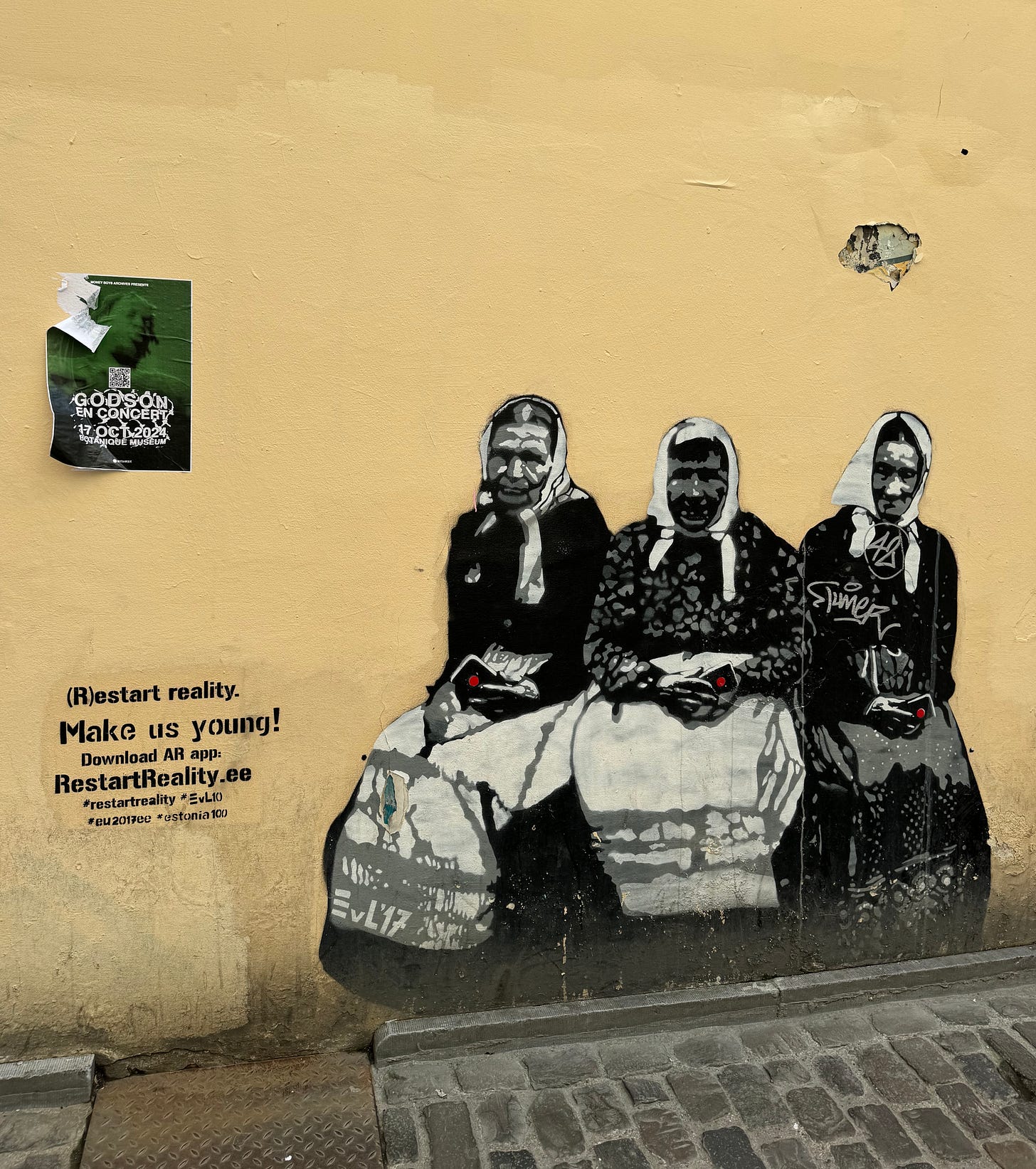The bed was so comfortable when my alarm went, and Joel so safe and warm, that I was loathe to get out. What madness compels this? For a moment, I sank back and thought how easy it would be to cancel my tickets, change my plans, stay put and have a nice childfree week at home with Joel.
Not doing the thing is always easier than doing the thing.
Joel made me coffee and I had a quick shower, packed last minute items. Charger, toothbrush, book. Another book. Then a third. It’s ok, two of them are small. (I ended up buying another two books on the trip, and one of them was by Robert Musil so you know it ain’t small. What can I say? I travel with books.).
The train rushed me towards London on the familiar commuter line. It was an overcast morning and the light was flat, air cool after a scorching week.
I miss Joel already, I thought.
I’m reading Transit by Rachel Cusk which, thematically at least, felt appropriate for a journey. I’m on the fence with Rachel Cusk. On the one hand: closely observed and well-written. On the other: laboured, pretentious and over-engineered. Like a Michelin meal touched by too many fingers.1
“The next station is London Marylebone. All change please.”
In Marylebone, a billboard of a leaping killer whale.
Orcas are apex predators with a diverse diet.
That’s cool, I thought: informative.
Then:
Looking for apex connectivity?
It was an ad for a mobile phone package.
By a strange quirk of the underground lines, it was quicker to walk several blocks to Baker Street than muddle through connections from Marylebone.
On the pavement outside the station, it’s so hot that London smells like Bangkok: an air of lightly cooked sewage on the streets.
It’s a Monday morning and feels strange—wonderful—to be abroad in the sun with a pack, not bound for the office. Wonderful to see London ticking along as it always does. I said a silent hallelujah for not having to live here anymore.
It’s been a long time since I was a lone traveller. I’ve noticed travelling alone has become less comfortable, more anxious, as I’ve grown older. Counter-intuitively, I was less concerned as a 22-year old ingénue than I am now. Aging into this world has made me increasingly aware of the deep well of hatred some men reserve for women. I am increasingly uneasy to be out in it. Travelling alone, disconnected from the relationships that construct an easily-parsable identity (“this is my man, these my children”) I wear a fake wedding ring as a protective device: it screens me, shields me, makes me less of a riddle and enigma to casual observer. Eyes pass onwards, incurious.
Just outside an optometrist near Baker Street, there’s a rotating screen trying to capture eyes of passers-by. It flashes up famous optical illusions: what do you see: an old lady or a young lady?
Often, I want to ask passers-by the same question.
What do you see?
In my mind’s eye, still a peripatetic twenty-something but in reality, a woman pushing early middle age, with a backpack, carrying a pillow, perhaps down on her luck (if you don’t notice the backpack is Patagootch).
I paused to take a picture of the optical illusion but it was gone, replaced by new scrawling messages that invited me to come in for a free eye test. I waited a minute or so for it to reappear but it didn’t.
Eventually, I decided this would be a really stupid way to miss my train to Brussels and moved on.
—
On the train, I was starving and took myself off to the café car.




